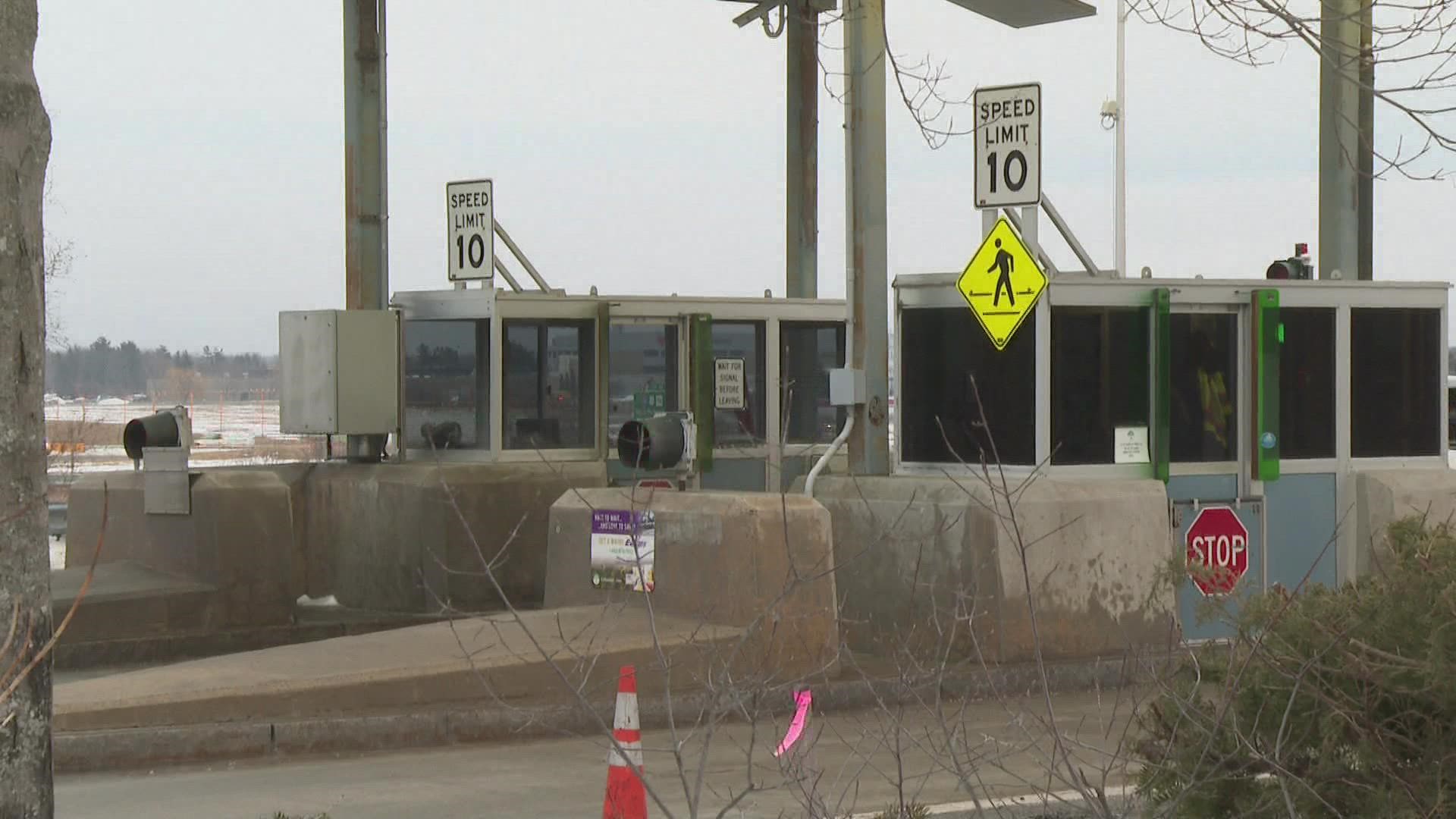MAINE, USA — Changes could be coming to how the Maine Turnpike Authority collects tolls. The MTA hopes to move to an all-electronic toll payment system in the coming years.
In the last several years, Maine has started to see more and more drivers switch to electronic payments like E-ZPass. In 2016, Massachusetts made the switch to all electronic payments.
As more states around the country do the same, and more drivers in Maine enroll with E-ZPass, Maine Turnpike Authority officials said far fewer cars are paying tolls in cash.
"Massachusetts going all electronic really shifted what happened here in Maine for cash toll collection. Because with so many people that have camps and come here on the regular to go skiing, those people already having those E-Z Passes in places has shifted what we're seeing for our cash toll collection," Maine Turnpike Authority spokesperson Erin Courtney said.
Courtney said in 2021, around 15% of tolls were paid in cash. In 2022, the MTA estimates it will bring in roughly $168 million in toll revenue, with $24 million being paid in cash.
"It's significantly easier to just be able to go through, as opposed to having to stop, pull off, pull out money, [and] give it somebody," Chris Cornett, who stopped at the Kennebunk Service Plaza on I-95 Wednesday evening, said.
The Maine Turnpike Authority does not yet plan to roll out only electronic tolling. It hopes to do so in the coming years. Courtney said the MTA would focus on creating a system that will allow fewer cars to slip through the cracks without paying.
"We want to make sure we have the methods and the means in place so that we know we'll be able to collect the money that we currently collect in cash," Courtney said.
In Massachusetts, the Department of Transportation sends bills to drivers that go through tolls without paying. Maine does the same right now for drivers that go through an E-ZPass lane without a transponder or if a toll collector is not available.
Courtney said in Maine, all tolls are staffed 24-hours a day. However, there are sometimes instances where there is no person actively collecting tolls. The MTA has also made significant efforts to reduce full-time staff working as toll collectors.
According to Courtney, when full-time staff retire, they are replaced with long-term temps. There are currently 125 toll workers in Maine.
There is no firm deadline on when cash will be eliminated. Courtney said that the MTA Board of Directors would work to find the best methods to collect tolls electronically and bill customers without transponders, which could take upwards of four to five years.

